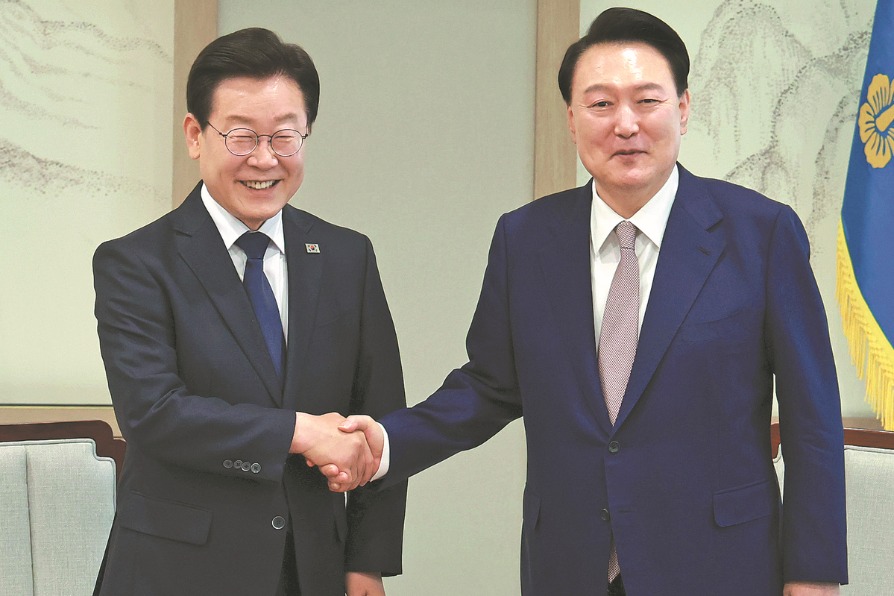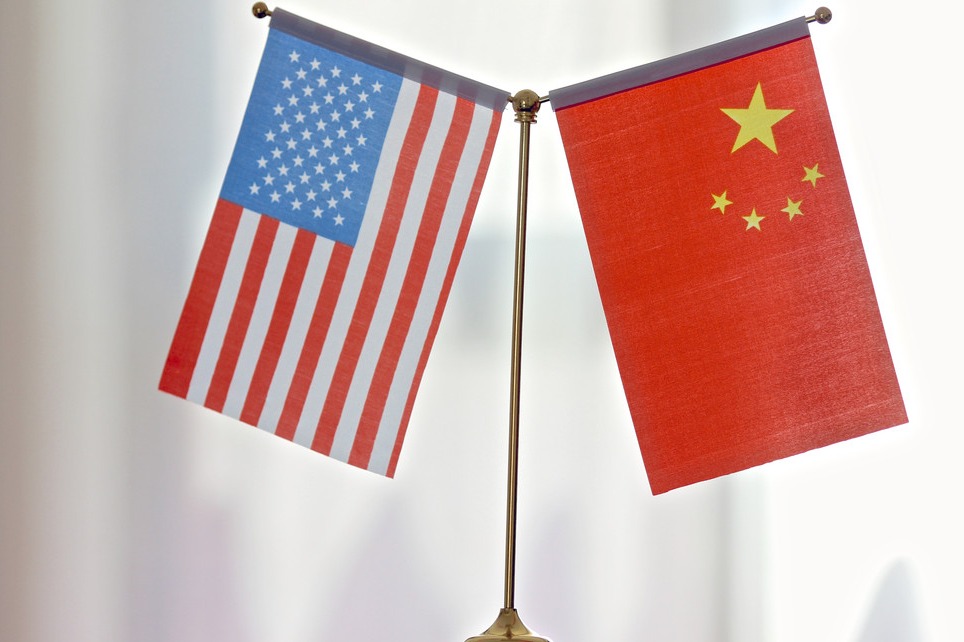Attempts on to trigger South China Sea conflict

The Philippines is unfortunately attempting to follow a one dimensional foreign policy, putting it on a dangerous path. This is because overreliance on the United States against China does not align with the Association of South East Asian Nation's basic principles of independence, neutrality and centrality, and ultimately it would be on the receiving end.
Not soon after its first joint maritime exercise with Australia, Japan and the US close to Chinese waters, the Philippines joined the first trilateral US-Japan-Philippines leaders' summit. Its joint statement singled out China as a potential target. Both are considered to be serious attempts to bully China with the intent of igniting a power struggle in the South China Sea.
By disregarding former agreements with China on handling maritime disputes especially on Ren'ai Reef, the current administration of the Philippines is purposefully creating frictions in the South China Sea, boosting and justifying the presence of the US military on its land.
Systematically, both countries have increased their presence in Subic Bay Naval Base and Clark Air Force Base, expanded a total of nine bases — some very close to Chinese territory — and inched toward a confrontational situation in the South China Sea.
The further legitimizing of military ties and cooperation with the US by President Ferdinand Marcos Jr by signing Executive Order No. 57 section 7 on March 25, enables Philippine agencies to "accept donations, contributions, grants, bequests, or gifts from domestic or foreign sources".
It is feared that the order would facilitate foreign interference and that regional maritime conflicts would be ignited and increase.
The Philippines' heavy dependence on the US to advance its position in the South China Sea is truly hurting Philippine-Chinese relations, as Beijing's Foreign Ministry spokespersons have reiterated that Manila should keep its word to remove the dilapidated Philippine navy vessel in Ren'ai Reef as soon as possible and stop encroaching on Chinese interests in the area.
Moreover, China has emphasized that it has indubitable territorial ownership and sovereign integrity of Nanhai Zhudao (the South China Sea Islands), including Ren'ai Reef and other features in the region occupied by the Philippines.
Obviously the Philippines acting as a pawn for the US could not receive support from other regional countries.
Most ASEAN member countries do not appreciate the Philippines' obsessive tone against China and its deviation from the true spirit of ASEAN, which favors ASEAN centrality and consensus building with China. Manila's push from under US' wing on a track of conflict could sabotage regional peace, freedom and neutrality.
No doubt both China and ASEAN members in general desire that the South China Sea should be a region of peace and stability, unlike those who cling to or live by hegemonic power.
China represents the collective hope of the Global South. Southeast Asian countries' relationship with China are improving, while confidence in the US as a strategic partner and provider of regional security has declined significantly. China is also the biggest trading, manufacturing partner and investor in most South Asian countries which reflects its strategic importance in stimulating regional economic recovery and supply chains.
Moreover, China is expected to firmly guard its territorial sovereignty and maritime rights and interests as its peaceful maritime operations in the East China Sea and South China Sea remain lawful, justified and restrained.
Yet the US, with one of the largest embassies among US missions abroad in Manila and increasing staff in its military bases, has been seeking to fire up tension and even conflict in the Asia-Pacific, especially in the South China Sea, which puts the Philippines on a volcano.
Under these circumstances, any military misadventure and inflammatory statements by any party under the instigation of external forces should not be allowed to undermine the overall mutually beneficial partnership between the ASEAN and China.
Thus US-Philippine military cooperation targeting China or another third country should be discouraged and jointly discarded. Any conflict in the China South Sea would be a disaster for the Philippines, including its blue economy and tourism industry.
The emerging geopolitical trends spoiling peace prospects could trigger increasingly massive domestic dissatisfaction among Philippine politicians, civil society and business community.
Thus hawks of the Philippines should avoid borrowed wisdom, weapons and wonderful pledges of the US to disturb the deep waters of the South China Sea, and should return to resettle the issue directly and bilaterally with China. Otherwise, it would be simply wandering in wonderlands.
The author is executive director of the Center for South Asia and International Studies in Islamabad, and director of the Global Development and Connectivity Institute in Islamabad. The views do not necessarily reflect those of China Daily.



































